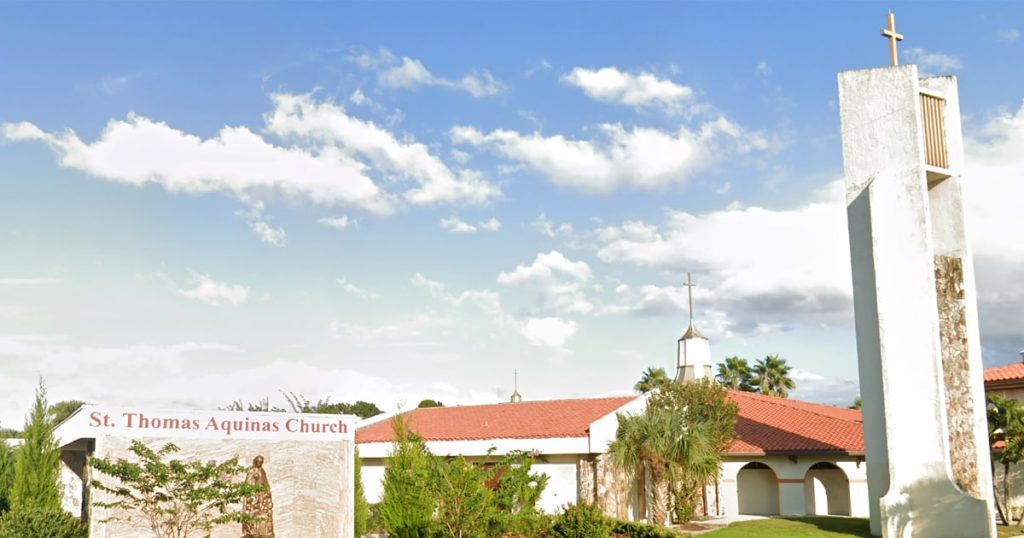A priest at St. Thomas Aquinas Church in St. Cloud, Florida, is facing battery charges after allegedly biting a woman during a dispute at Sunday Mass. The incident occurred when the woman attempted to take Communion without having completed the necessary steps according to the Catholic Church. The priest, Rev. Fidel Rodriguez, asked her if she had performed the prerequisite of Confession but she refused to answer, prompting him to offer her Holy Communion. The woman then forcefully grabbed some sacred hosts and when Rodriguez attempted to retrieve them, a struggle ensued which resulted in him biting her hand. The woman was subsequently asked to leave the church.
Following the incident, police investigated and charged Rodriguez with battery based on the woman’s account of the altercation. She claimed that the priest tried to force the wafer into her mouth and grabbed and bit her arm when she attempted to take the hosts. Rodriguez, in his statement to the police, asserted that he was trying to protect the sanctity of Communion and that the woman had attacked him first. Witnesses at the church provided video evidence of the incident, further corroborating the woman’s version of events. The Diocese of Orlando released a statement in response, acknowledging that physical altercations are not condoned but defending Rodriguez’s actions as an attempt to prevent desecration of the Holy Communion.
The diocese emphasized the importance of the Eucharist as central to the Catholic faith and worship, rejecting the woman’s characterization of it as a mere “cookie.” According to the church, the Eucharist is considered the “source and summit” of worship and faith and cannot be demanded arbitrarily. The statement from the Diocese of Orlando reiterated that while physical altercations are not sanctioned, Father Rodriguez’s response was aimed at protecting the sanctity of the sacrament. The incident has sparked debate and controversy, with some expressing support for the priest’s actions in defending the sacredness of Communion, while others criticize the use of physical force in resolving the situation.
The altercation at St. Thomas Aquinas Church has raised questions about the appropriate protocols for receiving Communion within the Catholic Church and the role of priests in upholding these guidelines. Some have pointed to the need for clearer communication and understanding between clergy and congregants regarding the requirements for participating in the sacrament. Others have called for a more compassionate and patient approach in such situations, emphasizing the importance of forgiveness and understanding in moments of conflict. The incident serves as a reminder of the delicate balance between upholding religious traditions and responding with grace and compassion in challenging circumstances.
As the legal proceedings continue and the community grapples with the aftermath of the incident, there are calls for dialogue and reflection on how to prevent similar conflicts in the future. The Diocese of Orlando has stated its commitment to addressing the situation with transparency and accountability, while also reaffirming the importance of respecting the sacredness of the Eucharist. The incident at St. Thomas Aquinas Church has sparked a broader discussion about the intersection of religious beliefs and human interactions, highlighting the complexities of navigating personal convictions within a communal setting. As the community seeks to heal and move forward, there is an opportunity for deeper reflection on the values of respect, understanding, and compassion in religious practice and communal life.


